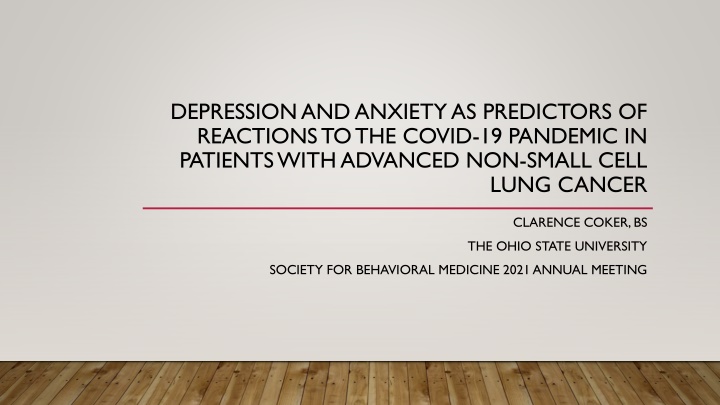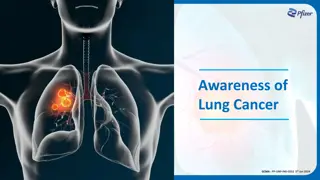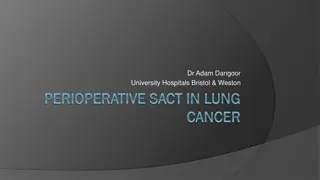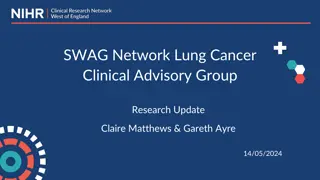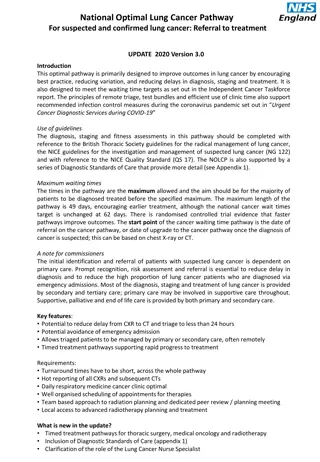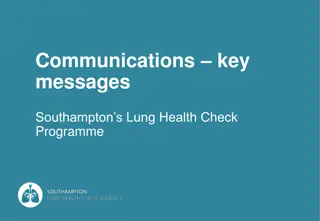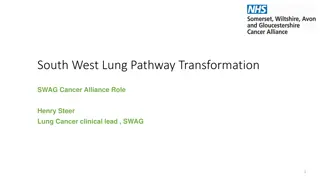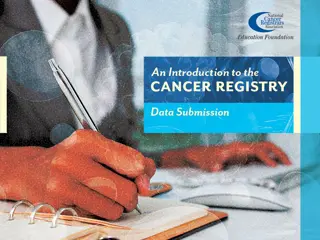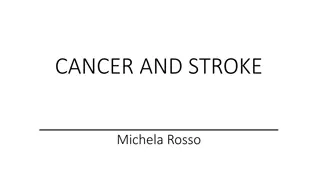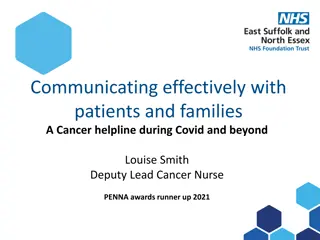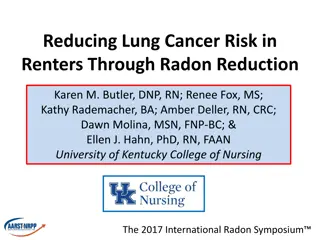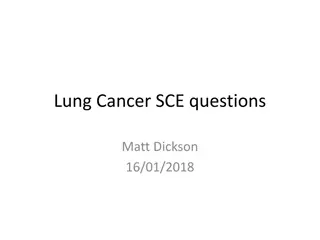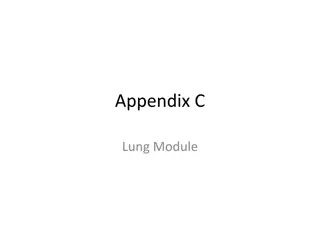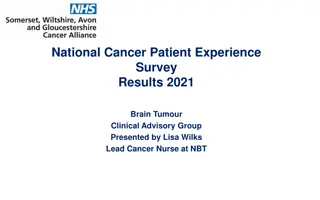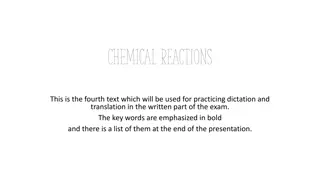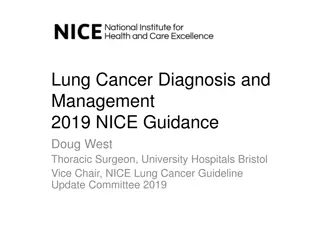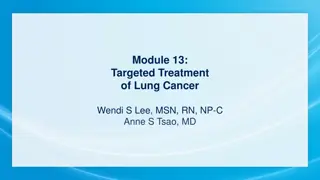Reactions to COVID-19 in Advanced Lung Cancer Patients
Anxiety and depression as predictors of reactions to the COVID-19 pandemic in patients with advanced non-small cell lung cancer. Explore how mental health impacts stress levels during isolation and safety measures. Discover the role of illness-related stress and COVID-19 perceptions in disease outcomes.
Download Presentation

Please find below an Image/Link to download the presentation.
The content on the website is provided AS IS for your information and personal use only. It may not be sold, licensed, or shared on other websites without obtaining consent from the author.If you encounter any issues during the download, it is possible that the publisher has removed the file from their server.
You are allowed to download the files provided on this website for personal or commercial use, subject to the condition that they are used lawfully. All files are the property of their respective owners.
The content on the website is provided AS IS for your information and personal use only. It may not be sold, licensed, or shared on other websites without obtaining consent from the author.
E N D
Presentation Transcript
DEPRESSION AND ANXIETY AS PREDICTORS OF REACTIONS TO THE COVID-19 PANDEMIC IN PATIENTS WITH ADVANCED NON-SMALL CELL LUNG CANCER CLARENCE COKER, BS THE OHIO STATE UNIVERSITY SOCIETY FOR BEHAVIORAL MEDICINE 2021 ANNUAL MEETING
BACKGROUND AND INTRODUCTION Anxiety and Depression play significant roles determining disease outcome in patients with advanced lung cancer (NSCLC) Illness-Related Stress also has an indirect effect on disease outcomes through sickness behavior The mental consequences of the COVID-19 Global Pandemic among vulnerable communities are yet to be fully explored
HYPOTHESIS AND STUDY AIM The current study investigates the role played by anxiety and depressive symptoms in reactions to the global pandemic in patients with NSCLC Hypothesis Patients with higher anxious or depressive symptoms will experience significantly higher levels of stress during isolation while exhibiting poorer safety
METHODS Patients with advanced NSCLC (N = 76) completed measures of: Depression: Patient Health Questionnaire (PHQ-9) Anxiety: Generalized Anxiety Disorder Scale (GAD-7) COVID Illness Perceptions: Brief Illness Perceptions Questionnaire (BIPQ) Social Distancing Efficiency and Stress During Isolation Statistical Analyses Multivariate Linear Regressions controlling for baseline values of predictors
RESULTS Table 2. Effect sizes from linear regression analyses testing Depression and Anxiety responses at the beginning of the pandemic to predict responses to BIPQ items, controlling for baseline values of the predictors (ps < .04)
CONCLUSIONS Patients high in anxiety spent less time at home, were less successful in social distancing from other household members and were more stressed than other patients Patients high in depression were more successful in social isolation and reported lower levels of stress than other patients
